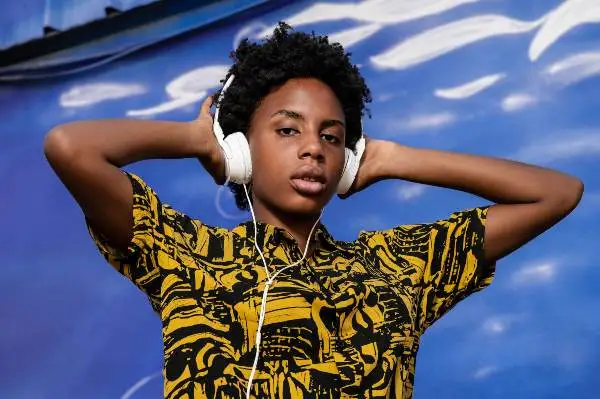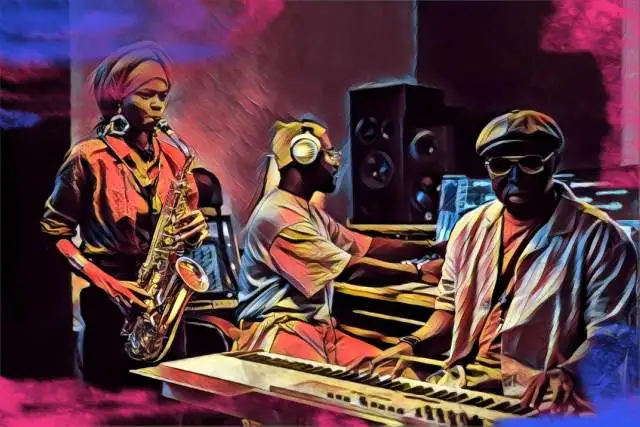Afro House is so much more than just your average sub-genre. It’s a spiritual vibration that many, especially those in the African community, feel deep down. Often called "spiritual" or a way to fully express oneself, the genre speaks to something raw and elemental.
It reaches people at their core, blending mellowed beats that pulse with a familiar yet transcendent energy. As a sub-genre of African music, it mixes elements of deep house and tribal sounds, capturing the essence of places like Soweto, Pretoria, Durban, Johannesburg, and Cape Town. Each of these cities has a special connection to Afro House, and each has its own flavor and history that would take an entire novel to go down the rabbit hole on.
As a whole, however, South African dance music is rooted in the emotions many people have experienced throughout history, whether joy, struggle, hope, or resilience. Throughout this article, we’ll explore what defines Afro House, what makes it special, and why it resonates with so many around the world.
The Characteristics of Afro House

Afro House is a genre that wraps its listeners in layers of soul, percussive rhythms, and a warmth that you can almost feel. The music centers around rhythm and groove, often driven by deep, hypnotic drums and percussion and rich, earthy instrumentation. Ethnic chants and African vocals frequently join the mix, which add another level of depth and authenticity.
The music sits around the “heartbeat tempo” (think allegro), a steady rhythm that’s as energizing as many types of house music but not as overwhelming. In a way, it keeps dancers connected to what I like to think of as a "communal pulse."
As for the key players, the scene’s bursting with talent.
Some of the big names you’ll find here include Black Coffee, Culoe De Song, Da Capo, Shimza, Enoo Napa, Themba, Lemon & Herb, Caiiro, Zakes Bantwini, and Msaki. These artists are not only defining the genre but also expanding it into new territories.
While South Africa is the heart of Afro House, European labels have also picked up on it. Labels like Innervisions, Moblack Records, and Tribe Records are pushing Afro House beyond borders and creating a broader audience for it. What’s impressive, though, is how the underground Afro House scene remains self-sustaining.
A Brief History of Afro House
Before it had an official name, Afro House was simply known as "house," and it existed in a space where genre boundaries were less defined. Over time, though, this sound started to stand out as something distinct, a unique twist on house music that felt undeniably rooted in African culture and tradition.
1980s
In a way, Afro House has its roots in the late ’80s. Back then, the genre was more a raw fusion of sounds than anything official, a reflection of local music tastes in South Africa.
Genres like kwaito, mbaqanga, and house were growing in popularity and blending together in interesting ways. But this was also during the apartheid era, so recording and promoting music that spoke to the people, especially one that had any sense of unity or joy, wasn’t easy.
Some of the earliest pioneers were kwaito-associated acts like Sipho Mabuse and Brenda Fassie . Their music made waves locally and even charted internationally on stations like Capitol Radio and KISS-FM, giving the world a first taste of the rhythmic, soulful energy coming out of South Africa. It was an outward introduction, a hint of what was brewing in the country’s music scene.
Meanwhile, DJs like Christos Katsaitis (better known as DJ Christos) and the Revolution twins were doing their part on the ground, spinning house records at local parties and underground spots. They became key players in spreading the sound, drawing people together to experience something that was both familiar and excitingly new.
1990s
By the time the ’90s rolled around, Afro House was finding its footing as a universal sound. It was a genre born from both local and global influences, and its appeal was quickly expanding beyond South Africa.
One key figure who played a role in this international crossover was Grammy-winning DJ and producer Louie Vega . During the ’90s, Vega made regular trips to South Africa, where he connected with local artists, DJs, and fans. His presence helped to bridge the gap between South African house music and the international scene.
Around this time, House Afrika Records was founded in 1994 by Tim White, Vinny Da Vinci, and DJ Christos. This label would go on to become one of South Africa’s most iconic house music labels, and it was instrumental in shaping Afro House as we know it today.
With influential releases like Fresh House Flava , a compilation series that became a staple, House Afrika showcased the best of South African house music.
2000s
The 2000s were a breakthrough decade for Afro House, a time when the genre started to gain serious traction on both local and international stages.
In 2003, the " Destiny" by Malaika topped the charts, marking a milestone moment. Its success showed that Afro House could capture mainstream audiences, bringing a taste of soulful, African-inspired house music to listeners who might not have encountered it otherwise.
Then, in 2005, South African artist Black Coffee dropped his debut, self-titled album.
The album went on to win Best Dance Album at the South African Music Awards , an unprecedented achievement that set a new standard for Afro House.
During this time, Afro House was also picking up steam in the UK. The genre’s rise even contributed to the creation of UK Funky .
2010s
The 2010s saw Afro House take off like never before, with the genre hitting a major surge in popularity and influence. This decade was packed with unforgettable releases and milestones that pushed Afro House further into the global spotlight.
Revolution’s "Teka Munike" became an anthem in its own right, while "Via Orlando ," featuring Dr. Malinga , was nothing short of a phenomenon. These tracks inspired countless dance floors and set the tone for the genre during this decade.
In 2014, Mafikizolo swept the South African Music Awards , taking home eight awards and highlighting just how much Afro House had become a cultural cornerstone in South Africa.
Then, in 2017, Beatport, one of the world’s biggest online platforms for electronic music, recognized the growth of Afro House and introduced an official category for it. This move helped Afro House gain further exposure, making it easier for DJs and fans around the world to find and support the genre.
By 2019, Afro House received another monumental nod when four South African DJs were nominated for the newly introduced Afro House category at the DJ Awards . Da Capo took home the award, marking the first-ever win for Afro House at the ceremony and putting a global stamp on the genre’s success.
Present Day
Afro House has now become a global force, and the last few years have shown just how big it is, so much so, that it's difficult to really pinpoint the critical moments.
In 2020, the label Kunye was established, creating a new platform for Afro House talent to shine and bringing even more attention to South African artists. Around the same time, Master KG and Nomcebo Zikode’s " Jerusalema " became a viral sensation, reaching number one on both Billboard and Apple Music charts.
In 2021, Defected Records , one of the biggest names in house music, launched an Afro House sub-label called Sondela . This label has been responsible for some incredible releases that continue to expand Afro House’s reach.
The recognition of Afro House on a global level was underscored when South African vocalist, DJ, and producer Lazarusman and the German duo Booka Shade were nominated for a Grammy with their album Dear Future Self .
And perhaps one of the biggest milestones yet came in 2023 when Black Coffee made history as the first African DJ and record producer to sell out Madison Square Garden in New York City . Sharing the stage with supporting acts like Major League DJz, Bucie, and Msaki, Black Coffee brought Afro House to one of the world’s most iconic venues and showcased the genre’s unstoppable momentum.
The Future of Afro House
Afro house is still very much in its mutation phase. One of the most exciting shifts is its influence on genres like Amapiano , a uniquely South African hybrid style of deep house, gqom, and jazz.
Even with all its success, Afro House still has room to grow on the international stage, and while it has already made its mark, there are plenty of untapped audiences and new collaborations waiting on the horizon.
The future looks promising, and as Afro House keeps inspiring and moving people, there’s no telling just how far it will go.





